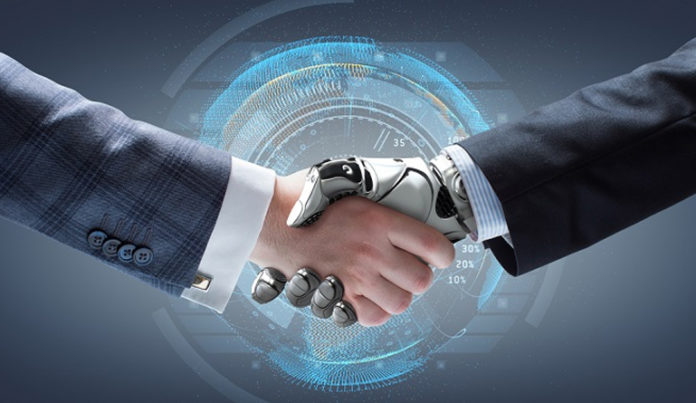
We’ve all heard the buzz about artificial intelligence, but to most small businesses, that’s all it is. However, that light buzzing sound will soon become a loud roar and if you aren’t prepared, you may end up on the wrong side of one of the most disruptive trends in our lifetime.
Numerous businesses are already using the many benefits of artificial intelligence to their advantage. According to Gartner, the number of companies that use some form of A.I. in their company has tripled in the last year. Still, most businesses are lost when it comes to this topic.
Before we get too far, let me first explain what artificial intelligence is. Artificial intelligence is simply the ability for a computer program to learn and perform tasks that in the past have required a human touch. There are numerous aspects of A.I. to be considered, including computer vision, natural language processing, machine learning and deep learning, to name a few.
New inventions and technologies have a long history of making people uneasy. It’s difficult to imagine now, but before the Industrial Revolution, everything was powered by either a human or an animal. Humans owned power, so when the steam engine came along, it seemed threatening. Many people protested the change.
Similarly, humans have owned intelligence throughout history up to this point. So it’s no wonder there is a lot of fear around computers sharing (and even surpassing) that intelligence.
So, how is artificial intelligence going to change the way we do business?
While A.I. will impact each business differently, one thing all businesses have in common is a need to communicate and market effectively to their customers.
Customer Insights
The ability to analyze and find patterns in large amounts of data is what A.I.-driven programs excel at. This is leading to an improved understanding of consumer behavior as well as improved ad targeting.
Personalization
As technology changes, so does the customer journey. In order to effectively reach your audience, you need to understand them as well as their experience across a multitude of channels, platforms and devices. The ability to understand the needs of the consumer is improving significantly, but A.I. will empower us to move from audience-based personalization to individual personalization.
Currently, we put out a message that hopefully resonates with our audience, but we are already starting to apply minor personalization at the individual level. In the near future, we’ll be able to effectively customize messaging to tailor to each individual customer needs on the fly.
Automation
While businesses have been leveraging automation for some time, the level of automation will continue to improve. From predictive lead scoring to automated follow-up calls from a program that sounds like a real person, a business’s ability to impress with amazing customer experience is going to improve.
Digital Assistants
Imagine for a second that you have an executive assistant that handles the small tasks that take up much of your day. Your assistant would get to know you, learn your likes and dislikes, your favorite lunch spots, manage your calendar, reply to emails on your behalf, do some of your shopping, remind you of important dates and even close your garage door when you leave it open.
Now, imagine that you get all of this for free. Would you take advantage of it? When I’ve spoken to large audiences, generally more than 90% say they would. The remaining 10% will be on board as soon as the assistants start doing their laundry and dishes.
One of the biggest consumer behavior changes we’ll likely see in the next five to 10 years will be consumers’ adoption and use of digital assistants. This is a huge opportunity for forward-thinking businesses because it will naturally increase demand. Currently, most marketing is reactive and you must prompt your tool of choice to get information. We’re already starting to see a more proactive approach. Soon, this technology will offer an option to be listening, taking notes, creating follow up reminders for you, and even delivering more information related to your interests, discussions and so on.
At Webfor we’ve been utilizing A.I. in our tools and processes for some time now. If you’re wanting to maximize the value you provide to your customers, you should start looking at how you can leverage this new technology to better communicate and reach your customers.
Kevin Getch is the founder and director of Digital Strategy at Webfor as well as the author of “Future Proof Your Marketing,” scheduled for release in mid-July. The book covers the ever-changing marketing landscape for businesses and how technology can help. He can be reached at Kevin@webfor.com.


